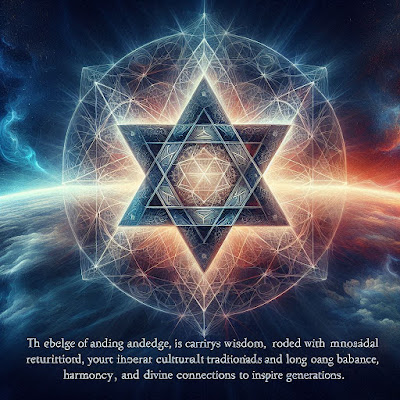Post 1: Imam Ali (AS) – The Vagus Nerve (Guardian of Equilibrium)
Imam Ali (AS) and the Vagus Nerve: The Guardian of Inner Balance
Harmonizing the Body and Soul through Justice and Reflection
Physiological Role of the Vagus Nerve:
The vagus nerve is a critical component of the parasympathetic nervous system, which controls the body’s “rest and digest” functions. It governs vital bodily processes such as heart rate regulation, digestion, and respiratory rate. This nerve plays an essential role in bringing the body back into balance after stress, maintaining homeostasis, and promoting relaxation. It has far-reaching effects on the organs it connects with, including the heart, lungs, and digestive system. Through its calming influence, it fosters a state of peace and equilibrium in the body.
Symbolic Role of Imam Ali (AS):
Imam Ali (AS), the first Imam of Shia Islam, is revered for his embodiment of justice, wisdom, and deep reflection. Known for his unwavering commitment to truth and fairness, Imam Ali was a man who sought to establish harmony both in society and within the individual soul. His leadership was marked by a balance of compassion and strength, a unique ability to unite diverse people under the banner of righteousness. The vagus nerve’s function of regulating and restoring balance within the body mirrors Imam Ali's role in harmonizing the spiritual, social, and intellectual realms of his followers.
Deeper Insight and Connection to Imam Ali (AS):
The vagus nerve’s action of calming and resetting the body aligns with Imam Ali's teachings on patience, reflection, and the pursuit of justice. Imam Ali (AS) frequently emphasized the importance of inner peace and spiritual equilibrium, teaching his followers that justice begins within the soul before it can manifest in the world. His commitment to fairness, as seen in his leadership and governance, required a deep reflection of the self and a harmonious relationship with those around him. The vagus nerve’s role in calming the body under stress mirrors the Imam’s ability to calm the tensions of society through reasoned and just decisions.
By connecting with the legacy of Imam Ali (AS), individuals may feel a sense of groundedness and balance in their own lives, much like the physiological calming effects that the vagus nerve provides to the body. Reflecting on Imam Ali’s qualities—his patience, his wisdom, and his ability to maintain composure in the face of adversity—may enhance one's sense of inner peace, emotional regulation, and resilience.
Reflection on Practices and Benefits:
To activate the vagus nerve and promote a sense of equilibrium, practices like deep breathing, meditation, and mindfulness are essential. Engaging in these activities while reflecting on the teachings and life of Imam Ali (AS) can have a profound effect on one’s emotional and physiological state. Imam Ali’s emphasis on introspection and reflection can help align the mind, body, and spirit, fostering a holistic sense of well-being. Through his guidance, we can learn the value of slowing down, reflecting, and allowing space for justice and wisdom to influence our lives.
Conclusion:
Just as the vagus nerve serves as the body's natural mechanism for restoring balance, Imam Ali (AS) represents the guiding force that leads individuals toward justice, inner peace, and spiritual equilibrium. By drawing on his teachings, one can learn to live with balance and fairness, both within the self and in relation to the wider world.
Further Reading for Imam Ali (AS) and the Vagus Nerve:
- "Nahjul Balagha": A collection of Imam Ali’s sermons, letters, and sayings, which offer deep insights into justice, spirituality, and leadership.
- "The Secret of the Vagus Nerve" by Dr. Stanley Rosenberg: Explores the physiological effects of the vagus nerve and how it can be activated to foster physical and emotional healing.
- "Justice in Islam" by Ayatollah Khomeini: A book that delves into the principles of justice from the Islamic perspective, reflecting Imam Ali’s embodiment of justice.
- "The Role of Reflection in Islamic Teachings" by Muhammad Baqir al-Sadr: Analyzes the importance of reflection in Islamic philosophy and its connection to personal growth and balance.
Image Description: An abstract, symbolic illustration showing a radiant energy field around the chest and neck area, representing the calming, grounding influence of the vagus nerve. Geometric patterns flow from this central area, symbolizing both the physical and spiritual connections that contribute to equilibrium. The image highlights the peaceful and restorative power of balance, with sacred geometry motifs in the background to evoke a sense of spiritual harmony and introspection.




Comments
Post a Comment